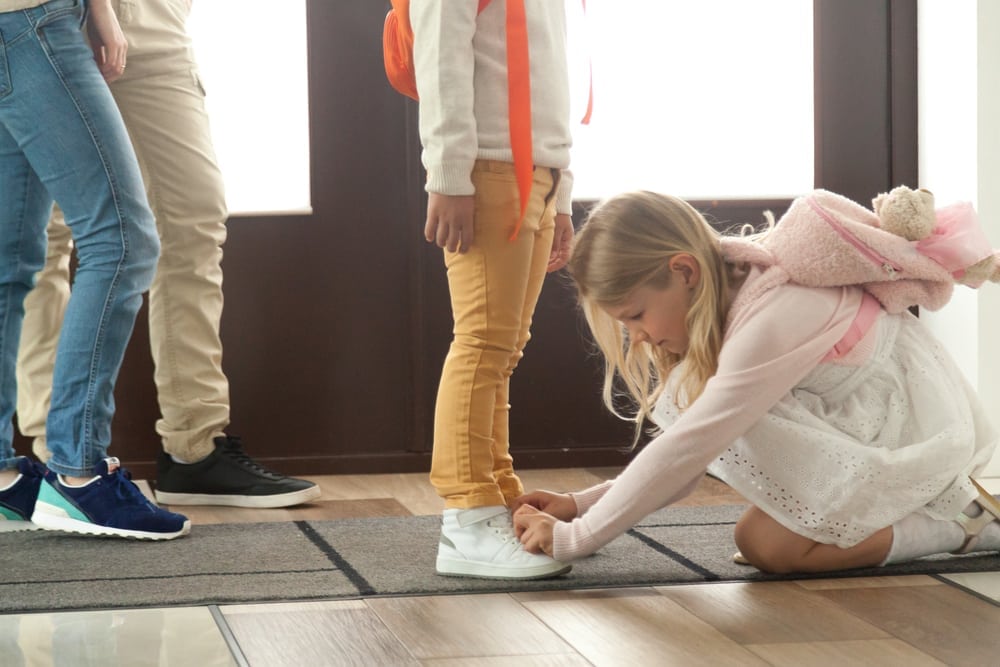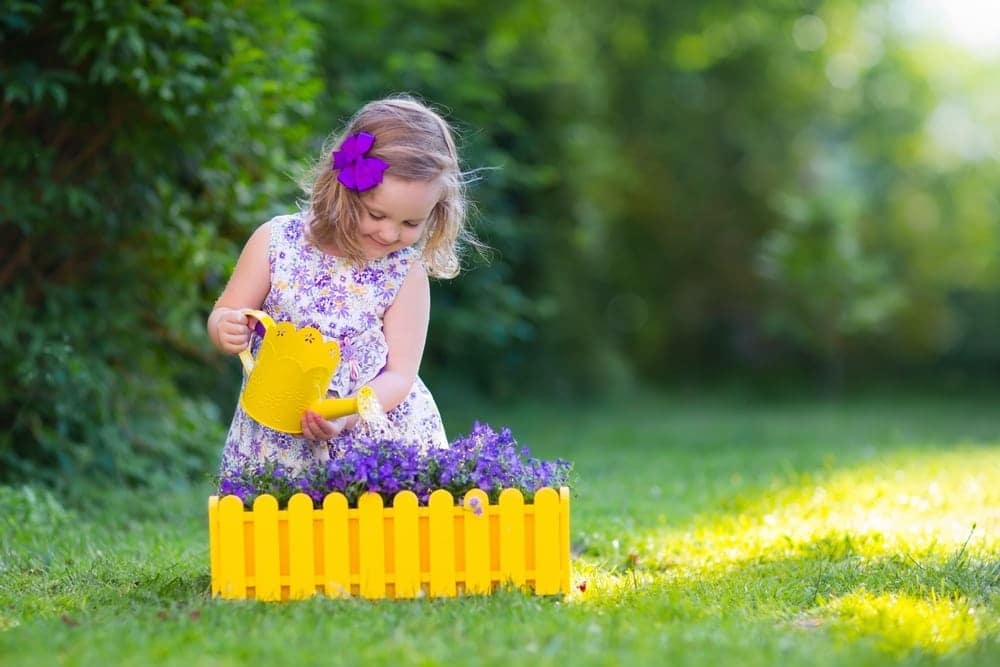By: Connie Parker
Being a part of a Montessori classroom is more than just academics, there is a social aspect to the classroom that is just as important. Children in a Montessori classroom learn to be a part of a community, where getting along with others is extremely important. Montessori teachers reinforce the values of kindness and respect every day by modeling appropriate behaviors and through lessons in grace and courtesy.
Kindness is taught in the Montessori classroom at Step By Step through a gentle hug to a friend, a smile, a nice compliment, giving a friend a push on a swing, tying a friend’s shoe or helping a friend up when they have fallen. We have implemented a kindness jar in each of our classrooms; when a teacher witnesses one of these kind acts in the classroom or out on the playground, the child places a colored cotton ball in the kindness jar. The goal is for the children to spread love and kindness in the environment.
The secret to kindness is when it is modeled and taught with passion and purpose. When we help and encourage our children to put kindness into action through thoughts, words, and deeds, the world will truly be a more peaceful and gentler place to live.
Mister Rogers was known as the King of Kindness. “Let’s make the most of this beautiful day” he would sing at the start of each episode. He made it sound so simple but knew how hard it could be. He was a positive example to all of us in how to be kind, thoughtful, fair and patient. He had a very calming approach in everything he did. Mister Rogers lessons of respect and appreciation for everyone’s unique opinions and perspectives were the focal point of his daily show. He brought love and acceptance to every child, especially if he/she was lonely, sick or feeling like they didn’t belong or have a friend. Mister Rogers taught children how to be compassionate, kind, polite and caring of themselves and of others.
In the biographical documentary “Mister Rogers Won’t You Be My Neighbor,” there was a segment in the documentary where he had a 10-year-old quadriplegic on his show. The little boy Jeff was asked to come on the show after he told his parents his greatest wish was to meet Mister Rogers. When he appeared on the show, he came in an electric wheelchair. Jeff spoke with Mister Rogers about his electric chair and why he needed it. He spoke about his doctors, upcoming surgeries, his parents and what he does when he is feeling sad. Mister Rogers sat and listened to Jeff and then together, they sang a song, “It’s you I like.”
The segment of the show was very powerful and emotional for me as I was amazed at the way he spoke to this little boy with such grace, compassion, acceptance, and kindness. You could tell that he was a man of great character and he was always able to see the goodness in people. When I listened to Jeff speak, I was overcome with emotions and amazed at this little boy’s positive attitude and how he smiled when he spoke about his life and the things he has had to endure at such a young age. Jeff was very trusting, honest and accepting while he spoke to Mr. Rogers, as if they had been friends for a long time. Mister Rogers’ genuine love for this little boy was evident and he made us all realize that children with challenges in life are no different from them and that they deserve respect and kindness just like everyone else. He had a way of making each child feel special and important and that he truly cared about everyone. He was a true beacon of kindness and charity.
Much of the movie showed similarities between his show and Montessori teachings that were captured in segments of his daily shows. Mister Rogers silent lessons he would give to the children, his calming ways of speaking to the children, and the great respect he had for each child were all Montessori approaches from our wonderful leader Maria Montessori.
There was a segment in the movie where Mister Rogers recorded a sweet message for his fans who had grown up watching him. In it he said, “I would like to tell you what I often told you when you were much younger. I like you just the way you are.” In the world we live in today, we could all learn a lot from this statement. We all wish to be “liked”. He has left us with many invaluable lessons we can pass onto our children and continue to learn as parents and educators. We can all learn to keep his legacy alive today by sharing the kindness, goodness and respect with our children that he shared with us.
Maria Montessori believed in kindness and respect to her core. She worked hard with children who were classified as “unteachable” and she had them master skills that had been thought to be totally beyond their capabilities. She respected them immediately and provided them with an environment full of kindness and respect.
A key component in our Montessori classroom is respect. We discuss expectations to promote kindness and respect with the children. They are expected to respect the teacher, respect the materials, respect friends and respect themselves. The best way for teachers to assist children in learning these concepts is to provide them with a clear understanding of the importance of respect and to educate them through communication by using our words, positive actions, and always modeling respect for others. Respect is taught to children in the classroom and it is found in the day to day practices of the children.
Having classroom management is very important in a Montessori environment. We teach the children to “not shout” from across the room but rather walk over and speak to others quietly. In being respectful during our work time and with our materials, it is important that each child has a task to complete in the material that they have been shown how to use. A child should not be interrupted during this time of determination and concentration. Children are to be respectful during these “work times.” Again, modeling respect for ourselves and for the materials is a valuable lesson for all children in our environment. As Maria Montessori said, “The children are working as if I did not exist”.
Lessons in Grace and Courtesy are essential ways to promote lifelong skills in each child. Some examples of Grace and Courtesy are walking the line, pushing a chair in (so no one trips), carrying work carefully (so as to not bump anyone or anything), walking around work rugs, offering to tie someone’s shoe, how to properly carry a chair or zipping someone’s coat. These important lessons are all designed to teach reinforcement and to provide children with plenty of opportunities to practice their Grace and Courtesy skills.
Modeling grace and courtesy presentations are core components to assisting in the children’s development of learning and how to get along with others. By teaching kindness and respect in the Montessori classroom, we aid children in their social development that will be a part of who they are for the rest of their lives.










